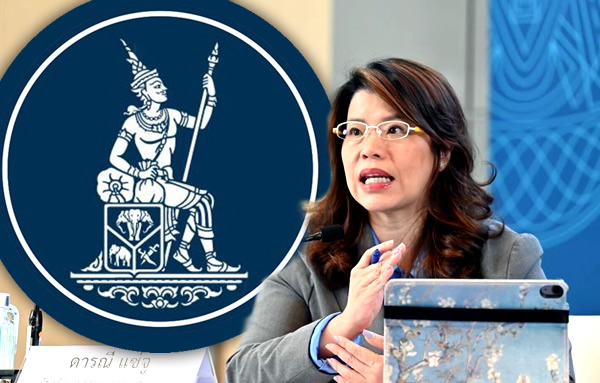A significant banking crisis has erupted across Thailand, as authorities have frozen thousands of personal and small business accounts in a sweeping crackdown on scam-linked mule accounts. This aggressive move, spearheaded by the Technology Crime Suppression Division (TCSD) and senior banking officials, has sparked widespread panic and outrage among the populace. Many ordinary citizens and small business owners woke up to find their bank accounts inaccessible, leading to an unprecedented rush to withdraw cash.
By Saturday night, the situation had escalated, prompting the Bank of Thailand (BoT) to respond urgently to the developing crisis. Assistant Governor Ms. Darunee Saeju assured the public that efforts would be made to reverse the unfavorable consequences of the account freezes. Yet as news spread, the fear of losing access to funds had already begun reshaping consumer behaviour. Retailers across the country opted to reject bank transfers, insisting on cash-only payments to guard against potential freezes of their own accounts.
The crackdown, aimed at dismantling online scam networks, specifically targets what are known as “mule accounts” — accounts used to transfer or launder money obtained through fraudulent activities. Authorities have employed advanced tracking technologies to identify and freeze accounts linked to suspected scams. However, this approach has inadvertently ensnared innocent individuals who lacked knowledge of any wrongdoing. Many found their accounts suddenly frozen without prior warning or justification.
In response to this situation, numerous legal professionals have criticized the mass account freezes. They argue that such actions represent a blatant abuse of power and violate fundamental property rights. Prominent lawyers have called on affected individuals to sue both the banks and state agencies, emphasizing that freezing accounts without due process undermines legal principles.
Legal experts are warning that the banking institutions now face serious legal repercussions as more individuals report suffering economic setbacks due to the account freezes. They argue that the banks are liable for the unauthorized actions of their systems. Current laws suggest that freezing a customer’s account without valid evidence constitutes negligence. If the justice system is also perceived as involved in unjust practices, this could lead to broader legal ramifications for both banks and regulatory bodies.
Meanwhile, citizens continue to be left in a state of limbo, facing hurdles when attempting to contact their banks and the relevant authorities for clarification. The anxiety has led many people to rush to ATMs and withdraw all available cash, fearing further disruptions. Shops and service providers are increasingly opting for cash transactions, heightening the risk of economic instability as consumers retreat from digital banking.
As calls for accountability gain traction, the BoT has pledged to reassess its current practices and protocols in cooperation with the TCSD. However, trust in the financial system is already eroding. The pushback against the mass account freezes illustrates a delicate balance between fighting financial fraud and respecting civil rights.
Legal representatives argue that the current situation reflects a systemic failure within both the financial and justice systems, warning of long-term economic consequences if immediate reforms are not enacted. Citizens are demanding action, calling for protections for ordinary people who find themselves unfairly implicated in a widespread dragnent aimed at criminal networks.
The unfolding events raise important concerns about consumer rights, the banking system’s responsibilities, and the delicate balance of ensuring public safety while maintaining trust in financial institutions. With social media platforms flooded with complaints, many are left wondering how the government and banks will respond to restore order and confidence in the financial landscape.







